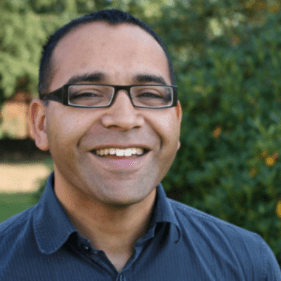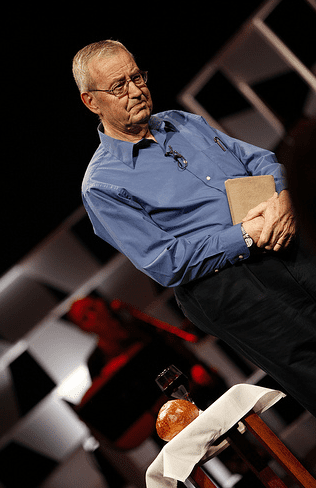This post is by Jeff Cook, and details are at the bottom.
Could Believing in God Harm Your Soul?
 Throughout Christian history it has been common to judge those who do not believe in God as not simply unwise, but morally suspect. That if a person did not believe in God, this was not simply a cognitive conclusion; it was a mark against that person’s character. Yet I know many men and women who want God to exist, know far more about the philosophical arguments for God-belief than I do, yet fail to embrace theism. Such folks are by all accounts honest and often doing the best with what they have—and this is a puzzle.
Throughout Christian history it has been common to judge those who do not believe in God as not simply unwise, but morally suspect. That if a person did not believe in God, this was not simply a cognitive conclusion; it was a mark against that person’s character. Yet I know many men and women who want God to exist, know far more about the philosophical arguments for God-belief than I do, yet fail to embrace theism. Such folks are by all accounts honest and often doing the best with what they have—and this is a puzzle.
Perhaps those of us who wrestle with God belief are actually in the precise place God desires us to be. Perhaps times of non-belief and the experience of God’s absence can have real value. That was my experience (which I chronicle here), it’s the experience of many I care about, and it is common experience in the Bible.
Do you think “believing in God” can be detrimental to faith, God-belief, the soul — as Jeff Cook explains this in the post? Can God-belief diminish desire for God?
God’s hiddenness points to the fact that God values our desires more than our beliefs. I have argued over the past month that wanting God to exist is more important than believing in God (here and here), because I hold that pursuits of the heart are more important than rational deductions and one’s ontology. Both are important of course, but I think there are good reasons for seeing reason as secondary. In my own experience, the material that moved me most in reconsidering God belief was all about desire and it came form a French mathematician named Blaise Pascal.
I can hear it now, “What, the wager guy?” If all you know of Pascal is the Wager Argument prepare to have your heart explode. I have placed some of the Pensees below in an order that I find compelling, and because Pascal’s quotes are so good I couldn’t help adding my reflections in brackets to push the argument. I would love to hear your thoughts, particularly from those of you who have trouble believing in God.
Starting With Ourselves
“We desire truth and find in ourselves nothing but uncertainty. We seek happiness and find only wretchedness and death. We are incapable of not desiring truth and happiness and incapable of either certainty or happiness” (401).
(The beginning of wisdom is knowing one knows nothing. We never possess truth. We can only look on it and love it. So too, we cannot possess life, for we are in danger every moment of losing the only life we have.)
“We have an incapacity for proving anything which no amount of dogmatism can overcome. We have an idea of truth which no amount of skepticism can overcome” (406).
(Neither skepticism nor dogmatism are worthy places to rest our heads, for neither can stand against counter attack.)
“What is man in nature? A nothing compared to the infinite, a whole compared to the nothing, a middle point between all and nothing, infinitely remote from an understanding of the extremes; the end of things and their principles are unattainably hidden from him in impenetrable secrecy. [Man is] equally incapable of seeing the nothingness from which he emerges and the infinity in which he is engulfed…Let us realize our limitations” (199).
(If we do not realize how very small we are, we are quite proud indeed–and pride cannot love wisdom.)
“Imagine a number of men in chains, all under sentence of death, some of whom are each day butchered in the sight of the others; those remaining see their own condition in that of their fellows, and looking at each other with grief and despair await their turn. This is an image of the human condition” (434).
(My favorite Pensees. Death destroys all philosophies. Russell knew it. Nietzsche knew it. Sartre knew it. In fact, death is retroactive and steals all meaning and value from our lives and thoughts now. The human condition is birthed into inescapable despair. Solutions to this problem alone can be labeled “Good News”, for without such solutions everything is butchered.)
On Seeking
“I look around in every direction and all I see is darkness. Nature has nothing to offer me that does not give rise to doubt and anxiety. If I saw no sign there of a Divinity I should decide on a negative solution: if I saw signs of a Creator everywhere I should peacefully settle down in the faith. But seeing too much to deny and not enough to affirm, I am in a pitiful state.” (429).
(Peter Kreeft said, If God is real, “he designed nature as a puzzle, not a solution.”)
“I condemn equally those who choose to praise man, those who choose to condemn him, and those who choose to divert themselves, and I can only approve of those who seek with groans” (405).
(Often what is sold by the peddlers of religion are easy answers: the one thing neither nature nor God seem to offer.)
“God being thus hidden every religion which does not affirm that God is hidden is not true and every religion which does not give the reason of it, does not instruct.”
(The materialist has a ready answer: God is hidden because God is not there. The Christian too often sets this question aside as unanswerable, but Pascal knows that here is where the deep truths of God’s character are uncovered.)
The Hidden God
“If there were no obscurity man would not feel his corruption: if there were no light man could not hope for a cure. Thus it is not only right but useful for us that God should be partly concealed and partly revealed, since it is equally dangerous for a man to know God without knowing his wretchedness as to know his wretchedness without knowing God … What can be seen on earth indicates neither the total absence, nor the manifest presence of divinity, but the presence of a hidden God. Everything bears this stamp…Man must not see nothing at all, nor must he see enough to think he possesses God, but he must see enough to know that he has lost him. For, to know that one has lost something one must see and not see: such is precisely the state of nature” (449).
(What a Wonder! God reveals more by being hidden than he would through full disclosure. Had God revealed himself fully, we would not know ourselves. Because God is hidden we know our inadequacies; we know our frailty. This opens the avenue for understanding the most important truth of all: we may now know the grace of God for we first knew ourselves, on our own, with no trace of God. God’s hiddenness reveals the depths and potency of God’s grace when it is extended to the wretched.)
“God wishes to move the will rather than the mind. Perfect clarity would help the mind and harm the will” (234).
(And God is justified in such hiding because God knows that wanting God to exist is more important than believing in God.)
On Reason
“One must know when it is right to doubt, to affirm, to submit. Anyone who does otherwise does not understand the force of reason. Some men run counter to these three principles, either affirming that everything can be proved because they know nothing about proof, or doubting everything because they do not know when to submit, or always submitting because they do not know when judgment is called for” (170).
(Neither lacking doubt, lacking faith or lacking reason are healthy. The dogmatic skeptic, the dogmatic rationalist, and the dogmatic fideist are each unbalanced. It is in the tensions that wisdom speaks.)
“Two excesses: to exclude reason, to admit nothing but reason” (183).
“If we submit everything to reason our religion will be left with nothing supernatural. If we offend the principle of reason our religion will be absurd and ridiculous” (173).
(Peter Kreeft says, “Not all of Christianity can be proved, but some of it can, and none of it can be disproved.” This is a great good, for reason takes us to that point where we can embrace God with our will. If all things about God where concretely proven, we would approach the Lover of our souls only through deduction without passion. God’s hiddenness insists that our souls awaken and plunge into the divine reality.)
“Reason’s last step is the recognition that there are an infinite number of things which are beyond it. Reason is merely feeble if it does not go so far as to realize that” (188).
(Reason can tell you where the ocean is, but not whether you should jump in. Reason can tell you of a wedding at noon, but not whether you should say vows to the girl standing there in white. Reason can tell you life is meaningless if there’s no God, but cannot tell you to seek the divine. Reason can tell you sin will destroy your soul, but give you no help in warding off sin.)
“Is it reason that makes you love yourself? … The heart has its reasons of which reason knows nothing: we know this in countless ways” (423).
(Way 1: A friend who loves you, knows you more deeply than your psycho-analyst. Way 2: The man playing jazz at midnight knows John Coltrane better than the PhD in composition looking over sheet music at noon. Way 3: …)
“What a long way it is between knowing God and loving him!” (377).
(The devils “know” more clearly than most who God is, and their knowledge leads them to retributive anarchy.)
On Choosing Christ
“There is enough light for those who desire only to see, and enough darkness for those of a contrary disposition” (149).
(“The eye is the lamp of the body. If your eyes are healthy, your whole body will be full of light. But if your eyes are unhealthy, your whole body will be full of darkness.” It is not what we see, but how we see it that matters most.)
“Not only do we only know God through Jesus Christ, but we only know ourselves through Jesus Christ; we only know life and death through Jesus Christ. Apart from Jesus Christ we cannot know the meaning of our life or our death, of God or of ourselves” (417).
(The few things we must have answers for in order to escape despair, find their best solutions in Christ. The canon of philosophical speculations and deductions are simply not in the same league as the New Testament portrait of Jesus Christ).
“The heart has its order, the mind its own … We do not prove that we ought to be loved by setting out in order the causes of love” (298).
(Lovers never propose in syllogisms. We should expect God’s offer of eternal life to be addressed, not to our reason, but to our souls. Reason will fill in the details later…if it can.)
Jeff Cook teaches philosophy at UNC. He is the author of Everything New: One Philosopher’s Search for a God Worth Believing In, which is an exploration of Pascalian arguments and Christian thought.










